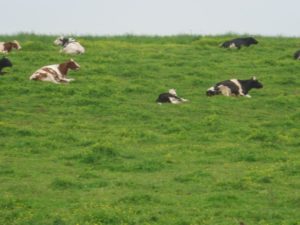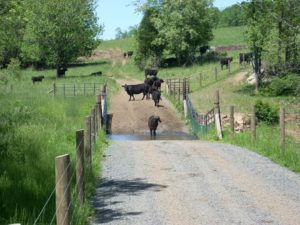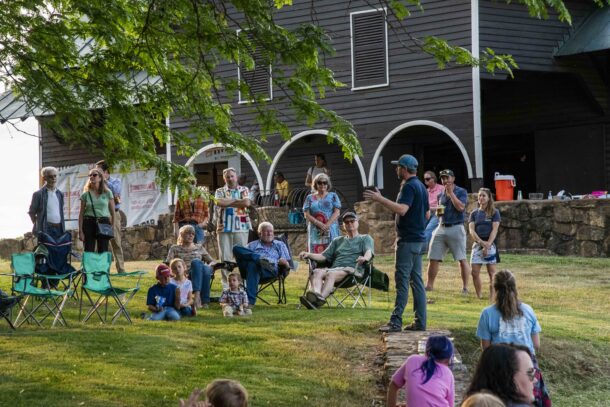
Cattle enjoying the benefits of rotational grazing and alternative watering systems facilitated by the VACS Program.
The coronavirus pandemic has given us time to slow down and reflect on life. The seasons are still coming and going “Turn, Turn, Turn,” now is the season when Soil and Water Conservation Districts (SWCDs) are taking a look at conservation projects needed on our agriculture lands to protect our natural resources. SWCDs serve nearly every locality across the Commonwealth, working to protect Virginia’s important soil and water resources. These conservation districts have begun another year of sign up for the Virginia Agriculture Cost Share Program (VACS), which is an annual program that began July 1, 2020 and will run through June 30, 2021.
The VACS program is funded by the State and focuses on improving water quality on agricultural lands, so typically the closer a project is to a water source, such as a spring, stream, or river the higher the priority. Projects can range from fencing streams off from livestock, to sowing winter cover on cropland, to nutrient management plan writing, or even treating critically eroding gullies. These conservation practices help protect our soil resources from erosion and nutrient loss, and water resources from receiving sediment and excess nutrients. Agriculture is the leading source of sediment and nutrient pollution in the Chesapeake Bay, and many farmers rely on the VACS program to be able to cover part of the cost for Conservation practices which are helping to clean up the Bay and its tributaries, like the Rappahannock River.

A cow drinks from a hardened stream crossing. Crossings reduce the environmental impact of the animals by concentrating their access to one specially engineered spot on a stream.
Many practices are cost-shared at a 75% rate, meaning the state covers 75% of the cost, and the landowner covers the other 25% while agreeing to maintain the practice for a certain amount of time (typically 10 years). However, some practices have rates that vary between 50% and 100% of the allowable cost. There are 83 different conservation practices that can help to improve agricultural land’s resources with technical and financial assistance, or state tax credits.
Landowners, land managers, farmers, and farm managers are encouraged to apply for these programs to improve the land and the efficiency of their operation. If interested, contact your local conservation district.
- Fauquier County: 540-347-3120 x3;
- Culpeper, Rappahannock, Madison, Orange, Greene Counties: 540-825-8591;
- Spotsylvania, Stafford, King George Counties and City of Fredericksburg: 540-656-2401;
- Lancaster, Northumberland, Richmond, Westmoreland Counties: 804-313-9102;
- Essex County: (804) 443-2327;
- Caroline County: 804-365-6000;
- Middlesex County: 804-699-3482.
Content provided by John Marshall Soil and Water Conservation District.

